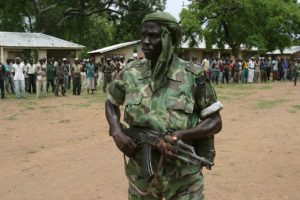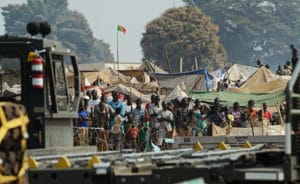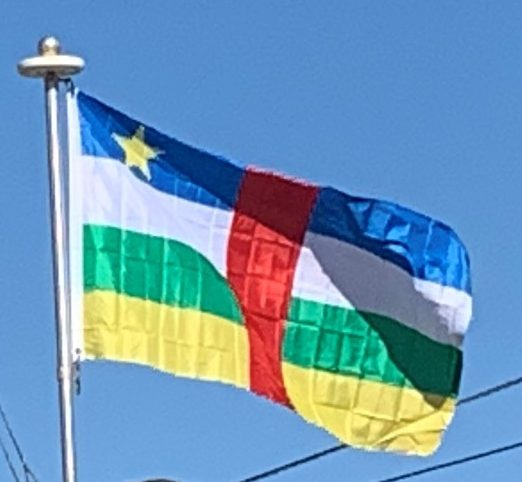François Bozizé suspended the constitution and named a new cabinet, which included most opposition parties. Abel Goumba was named vice-president, which gave Bozizé’s new government a positive image. Bozizé established a broad-based National Transition Council to draft a new constitution, and announced that he would step down and run for office once the new constitution was approved.

In 2004, the Central African Republic Bush War began, as forces opposed to Bozizé took up arms against his government. In May 2005, Bozizé won the presidential election, which excluded Patassé, and in 2006 fighting continued between the government and the rebels. In November 2006, Bozizé’s government requested French military support to help them repel rebels who had taken control of towns in the country’s northern regions. Though the initially public details of the agreement pertained to logistics and intelligence, the French assistance eventually included strikes by Dassault Mirage 2000 fighters against rebel positions.
The Syrte Agreement in February and the Birao Peace Agreement in April 2007 called for a cessation of hostilities, the billeting of FDPC fighters and their integration with FACA, the liberation of political prisoners, integration of FDPC into government, an amnesty for the UFDR, its recognition as a political party, and the integration of its fighters into the national army. Several groups continued to fight but other groups signed on to the agreement, or similar agreements with the government (e.g. UFR on 15 December 2008). The only major group not to sign an agreement at the time was the CPJP, which continued its activities and signed a peace agreement with the government on 25 August 2012.
In 2011, Bozizé was reelected in an election which was widely considered fraudulent.
In November 2012, Séléka, a coalition of rebel groups, took over towns in the northern and central regions of the country. These groups eventually reached a peace deal with the Bozizé’s government in January 2013 involving a power sharing government but this deal broke down and the rebels seized the capital in March 2013 and Bozizé fled the country.
Michel Djotodia took over as president. Prime Minister Nicolas Tiangaye requested a UN peacekeeping force from the UN Security Council and on 31 May former President Bozizé was indicted for crimes against humanity and incitement of genocide. By the end of the year there were international warnings of a “genocide” and fighting was largely from reprisal attacks on civilians from Seleka’s predominantly Muslim fighters and Christian militias called “anti-balaka.” By August 2013, there were reports of over 200,000 internally displaced persons.

French President François Hollande called on the UN Security Council and African Union to increase their efforts to stabilize the country. On 18 February 2014, United Nations Secretary-General Ban Ki-moon called on the UN Security Council to immediately deploy 3,000 troops to the country, bolstering the 6,000 African Union soldiers and 2,000 French troops already in the country, to combat civilians being murdered in large numbers. The Séléka government was said to be divided and in September 2013, Djotodia officially disbanded Seleka, but many rebels refused to disarm, becoming known as ex-Seleka, and veered further out of government control. It is argued that the focus of the initial disarmament efforts exclusively on the Seleka inadvertently handed the anti-Balaka the upper hand, leading to the forced displacement of Muslim civilians by anti-Balaka in Bangui and western CAR.
